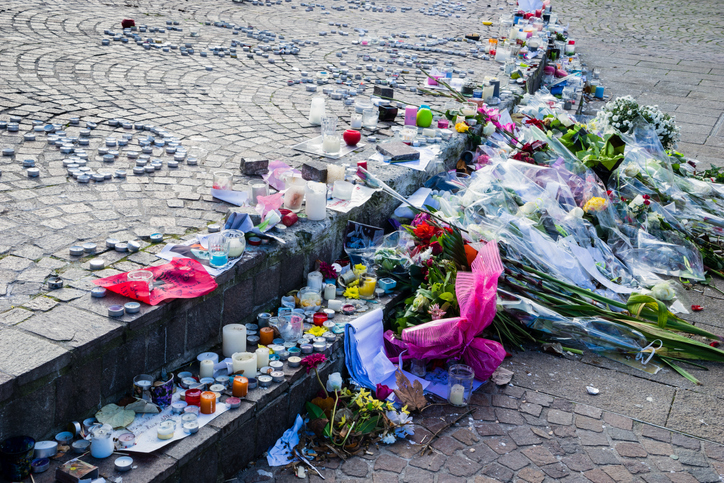by Veronica Vaiti, LCSW-R
The tragic shooting at Sandy Hook Elementary School on December of 2012 has left many of us dumbfounded and heartbroken. In the discussions following the deadly shooting contributors from the medial and mental health field devoted ample time to trying to provide a rational explanation for such an irrational act. According to figures extracted from Mother Jones, since 1982 there have been 62 mass shootings in the USA, twenty five of those shootings have occurred since 2006. These numbers indicate that the mass shooting incident rates have doubled per year since 2006.
The phenomena of the mass shooting is becoming far too common for us to ignore its distinct repetitive nature especially since the perpetrators of these mass killing sprees often share strikingly similar backgrounds and personality traits. The Mass Murder Killing Prototype (MMKP), a term I have coined to describe the perpetrators of mass shootings often is an introverted young adult between the ages of 20-30 who does not seem to fit in or mesh with their social milieu. They are intelligent and detail oriented, and can appear socially awkward. The MMKP can have an infatuation with weapons, seem insecure, have strong feelings of anger and hopelessness and have limited contacts. These individuals for the most part appear to function and get by in society until they suffer from a gradual break in reality and/or a subsequent strong urge to kill which results in mass murder.
It is my clinical opinion that the act of murder itself serves as a form of expression of anger, is attention seeking and at the same time a desperate attempt to connect with others through control. It’s as if the perpetrator is trying to say, “I can finally experience and express with others my anger and rage and for a moment I am not alone because we will all perish together and I will be in the spotlight”. Let us not be fooled by the heinous crimes of people who commit mass murders, underneath it all they have a strong desire to connect – a healthy need which has gone awry and which, to them, seemingly has no other form of expression. Why else would someone choose to create such a vulgar act of exhibitionism in a mass social context?
What makes mass murder so difficult to prevent is the isolated nature of the perpetrator which insulates him from asking for or receiving help. In fact it is my clinical opinion that social isolation is a significant factor which may trigger the mass murder trajectory. It is a scientific and validated fact that social connection is a major contributor to happiness and well-being. As Dr. Martin E.P. Seligman puts it in his book Flourish, “…loneliness is such a disabling condition that it compels the belief that the pursuit of relationships is a rock-bottom fundamental to human well-being.” In the case of a person struggling with mental illness, social isolation may lead to severe and pathological outcomes. As a society we have become remarkably isolated. Although we are cyberly and superficially connected, we are so intimately estranged to the point where we even lack the awareness of how isolated we really are. It is vital that as a society we learn how to once again engage and reconnect with one another on a pure level to the point where we can also be better prepared to identify and care for those of us who are in need of our support before it is too late. Connection is no longer a luxury but a true life or death issue, it is a healing and preventive necessity.
According to a study by the American Sociological Review in 2004, since 1985 the average American reports to have a third fewer close confidants (including family and friends) from three close confidants in 1985 to two in 2004. Also one in four people report having no close confidant at all. As these findings suggest, the trend is towards the shrinking of social and meaningful contacts.
Mental health providers can play a vital role in assisting individuals, families and school educators in identifying potentially troubled youth and referring them to treatment. Additionally, mental health providers can and should be utilized to teach interpersonal and communication skills as part of the school curriculum. Classes from kindergarten and upwards should have classes geared towards developing empathy, communication and interpersonal skills and social sensitivity. Children may be taught the importance of including their peers in play and how to reach out to someone who is “shy”. Additional mental health providers need to be employed in schools and provide consultation services to teachers and provide outreach to families and communities on the early signs of mental health problems and on development of social skills.
Unfortunately currently mental health conditions are by in large treated only when they have reached the highest pathological threshold. It is my clinical opinion that mental health requires a paradigm shift to a more preventive approach. The awareness of a preventive approach has already percolated to the medical establishment. It is time that the mental health establishment get on board. We can make a change.



